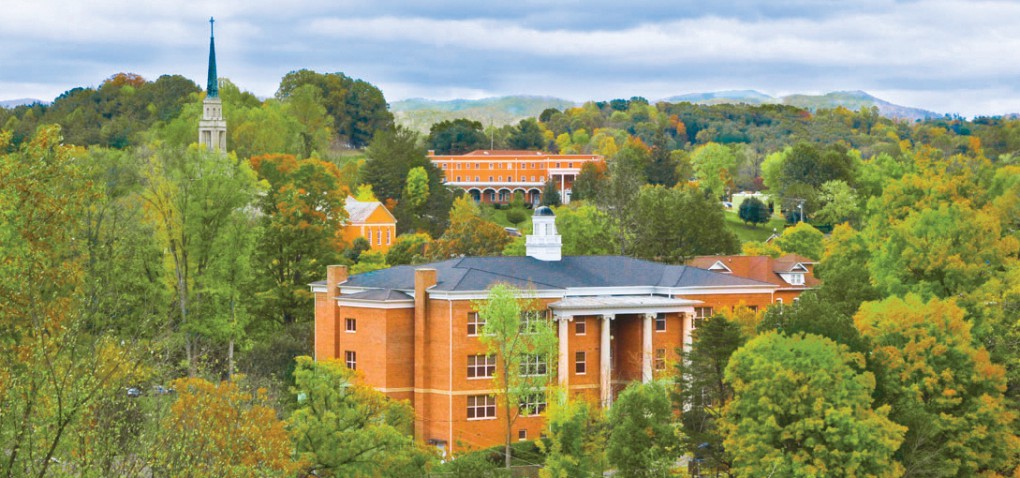Milligan students’ attitudes about sexuality have changed dramatically over the last five years, according to a recent survey conducted by the Stampede.
The survey revisited the one conducted in October 2015, after Milligan released a draft of its sexuality policy statement.
The 2020 survey link was emailed to all current students on Nov. 11. The results are based on the responses of 122 students.
Seventy-two of those respondents have read the school’s statement concerning human sexuality while the other 50 had not. Of those who read it, roughly 61 percent stated that it does not reflect their own views compared to the 28 percent that disagreed with it in 2015. Only about one-third (31 percent) agreed that the statement matches their views versus the 46 percent who agreed in 2015.
Seventy-one percent of students believe Milligan should treat all legally married couples, heterosexual or same-sex, equally while roughly one-fifth (21 percent) disagree that all legally married couples should be treated equally.
“Everyone regardless of gender or sexuality deserves to be treated equally even if it goes against personal/religious views,” one student wrote in the anonymous comment section. “It’s not for us as humans to decide whether or not they can be treated with the human decency everyone heterosexual recieves.”
Others expressed that it shouldn’t be an issue.
“I don’t care because it’s not my business,” one wrote.
This trend towards openness to sexual diversity continued with the responses regarding the student body’s level of comfort with various interactions and housing arrangements with members of the LGBTQ+ community.
A majority of respondents in both 2020 and 2015 indicated they are acquaintances or friends with someone from the LGBTQ+ community. The results in 2020 revealed 90 percent of students as acquainted with the community, and 84 percent counted members of the LGBTQ+ as friends. In 2015, 59 percent were acquainted and 60 percent were friends.
In 2020, 43 percent of students said they strongly agreed that they would be comfortable rooming with a member of the LGBTQ+ community, while 15 percent said they strongly disagreed. Only 16 percent of students strongly agreed in 2015, with 25 percent strongly disagreeing. However, over one-third of students (36 percent) in 2015 strongly agreed to being comfortable with LGBTQ+ students living in the same building. Today, more than half (55 percent) of students are comfortable at least living in the same building.
Another variation between the two surveys was the question of students’ comfort level with someone from the LGTBQ+ community working as a professor or staff member at Milligan. In 2015, 35 percent of students were not comfortable with Milligan professors or staff being a member of the LGBTQ+ community while 43 percent were.
By contrast, in 2020, three-fourths (76 percent) of students who responded were comfortable with a Milligan professor or staff member being part of the LGBTQ+ community. Eighteen percent of respondents still disagreed.
“As a private liberal arts Christian university, Milligan has a unique ability to follow the teachings of Christ on the issue,” as one student wrote. “How can we truly educate men and women to be Christ-like servant leaders if we have faculty/staff members blatantly living in direct contradiction of the Bible. As Christians, we are called to love everyone, but that doesn’t mean we openly accept and embrace all lifestyle choices.”
Whether regarding students or faculty, it is clear that Milligan’s students have become more open to sexual diversity than they were in 2015, so much so that some have called on the school to take action.
“I think Milligan should commit to either purposefully affirming its members who are LGBTQ+ or being honest about its discriminatory standing,” said one student. “By saying LGBTQ+ students are welcomed but not making tangible efforts to support them, Milligan’s false neutrality makes campus unsafe for its LGBTQ+, as they are left unsure if they are actually protected or valued by the letter or spirit of the policies.”
Milligan allowed an LGBTQ+ support group to form in the fall of 2019.
However, students do realize that the situation does not have a set solution and requires much thought and conversation as sexuality remains a controversial topic within the church.
“Nuanced management of how to love people who disagree with Milligan’s worldview and how to enforce standards for the Milligan community without abusing power or disrespecting human dignity seems to remain a matter in need of discussion,” stated one student.
Despite the majority of the student body being more open to sexual diversity, the varying viewpoints make this a delicate topic to approach. The conversation on sexuality is one likely to continue on Milligan’s campus for years to come, and the results of the recent survey only reinforce the fluidity of the situation.
*The Stampede recognizes from critique and comments on the survey that some of the language used may now be considered out of date. Minimal changes were made from the 2015 version to ensure an accurate comparison of the changes that have occurred over the last five years. Also, online collection methods were used for the 2020 survey instead of the in-person outreach used in 2015 due to COVID-19 restrictions.





